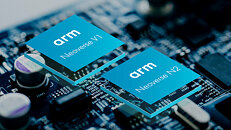
Lenovo Files Patent Infringement Action Against ASUS with the US ITC
Lenovo (United States) Inc., part of the global technology corporation, Lenovo Group, filed a patent infringement action on November 15th with the United States International Trade Commission (ITC) against ASUSTeK Computer Inc. and ASUS Computer International (ASUS) for infringement of a variety of Lenovo's patents related to software, hardware, and connectivity across multiple ASUS products. The action is in response to ASUS's August 2023 filings in the Regional Court of Munich related to cellular technologies, where Lenovo had offered a cross-licensing deal as a solution.
Lenovo is a strong proponent of cross-licensing agreements, open and transparent negotiations, and licensing within the industry on fair, reasonable, and non-discriminatory (FRAND) terms. This is evidenced by the Group's ongoing litigation with InterDigital, where it advocated for greater transparency and less discrimination in licensing negotiations and was proven by the UK Court to be a willing licensee. The action against ASUSTeK reflects the Group's commitment to protecting its significant contributions to technology innovation and industry "firsts" over the past 39 years, building a portfolio of over 28,000 patents with a further 14,000 applications pending.
Lenovo is a strong proponent of cross-licensing agreements, open and transparent negotiations, and licensing within the industry on fair, reasonable, and non-discriminatory (FRAND) terms. This is evidenced by the Group's ongoing litigation with InterDigital, where it advocated for greater transparency and less discrimination in licensing negotiations and was proven by the UK Court to be a willing licensee. The action against ASUSTeK reflects the Group's commitment to protecting its significant contributions to technology innovation and industry "firsts" over the past 39 years, building a portfolio of over 28,000 patents with a further 14,000 applications pending.














































